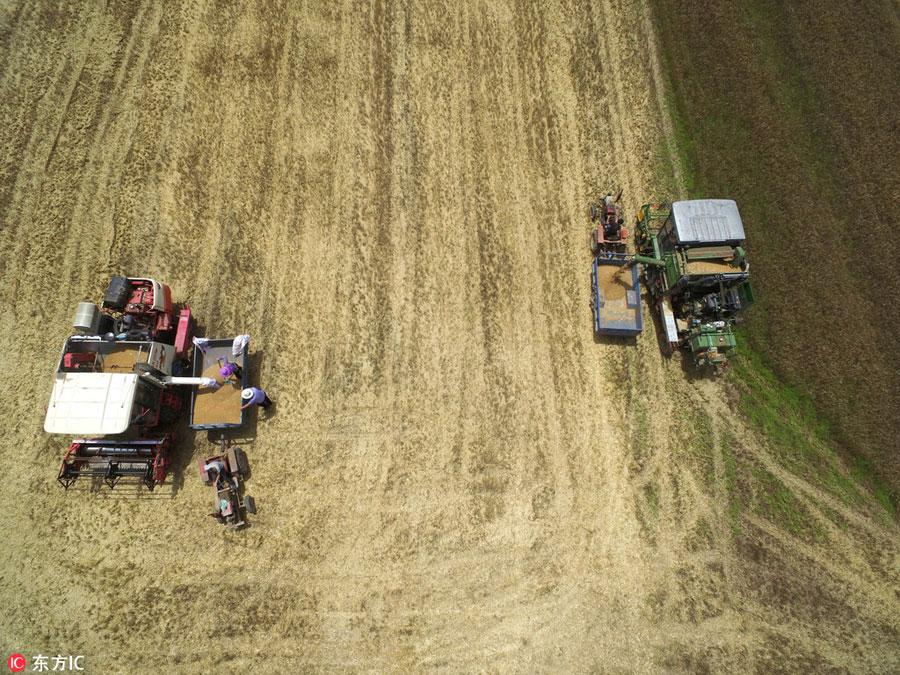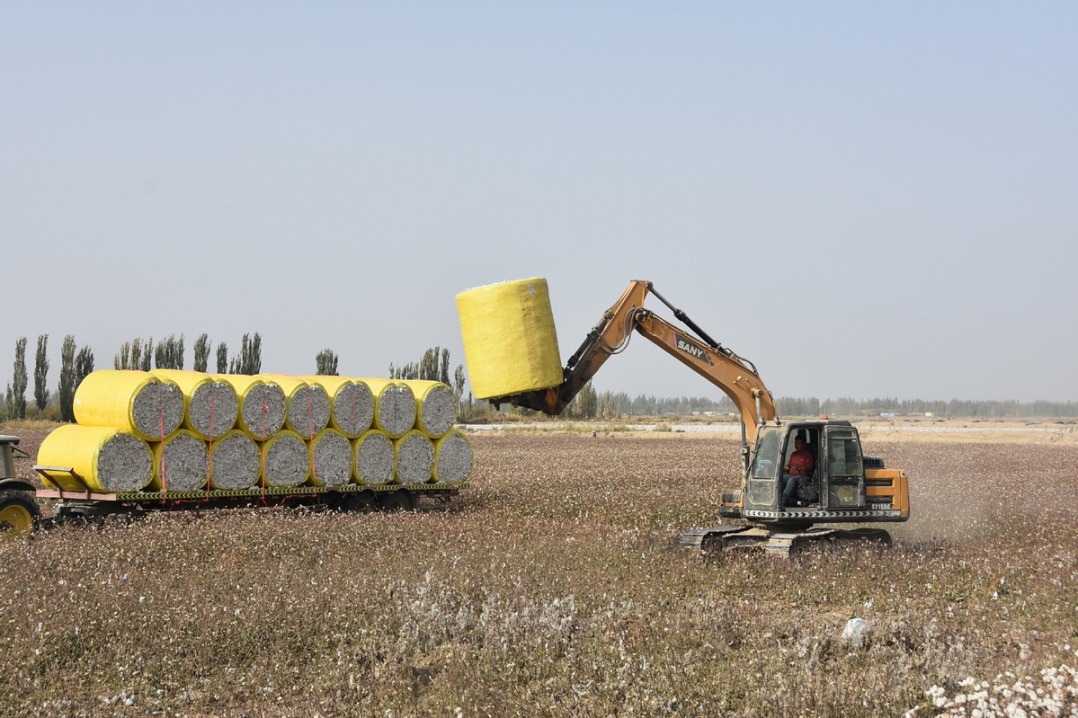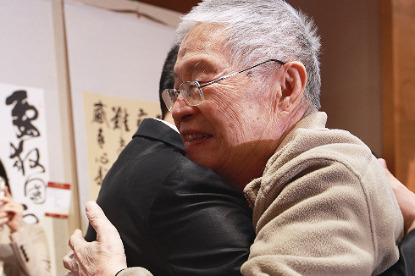Consolidation promotes development of farming sector


Between 1949, when the People's Republic of China was founded, and 1952, the landlord system was abolished and farmers were given full ownership of their land: they could buy, sell, operate it freely or lease it to other people.
However, in 1953, China started its socialist transformation, which promoted collective land ownership by rural cooperatives and related groups. Farmers worked together in units and did not have the right to lease land to others or transfer ownership.
In 1978, farmers were allowed to sign contracts with villagers' committees for use of an agreed area of land operated by local cooperatives.
In the years that followed, more efficient production methods resulted in higher yields and led to the founding and promotion of family-based individual farms on contracted land nationwide.
That transformation prompted the nation's farmers to raise their work rates, which resulted in better yields and ensured food shortages and hunger quickly became history.
However, although farmers had the right to work the land they contracted they were not allowed to transfer or lease it, so it was generally not in circulation - that is, leased out - in rural areas.
To provide a greater sense of security among farmers, in 1997 and 2017, the central government pledged that land contracts would automatically be extended for 30 years when they expired.
- Shanxi University shapes global cultural ambassadors
- China aims to raise the average life expectancy to around 80 years
- China launches Long March 5 carrier rocket to deploy new satellite
- Rain respite aids fall harvest in Shandong
- Snowstorms forecast as La Nina onset nears
- China's largest all-electric bulk carrier launched in Central China




































